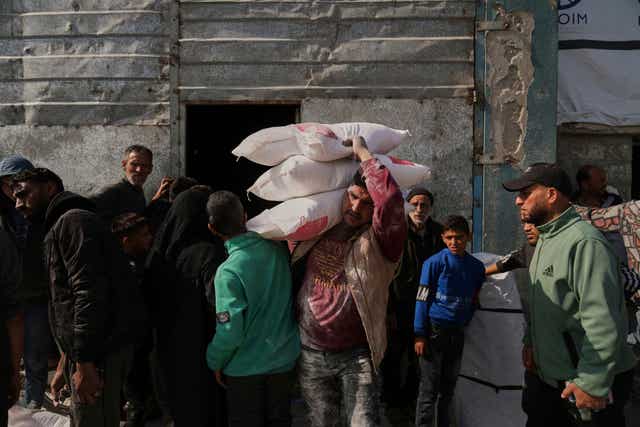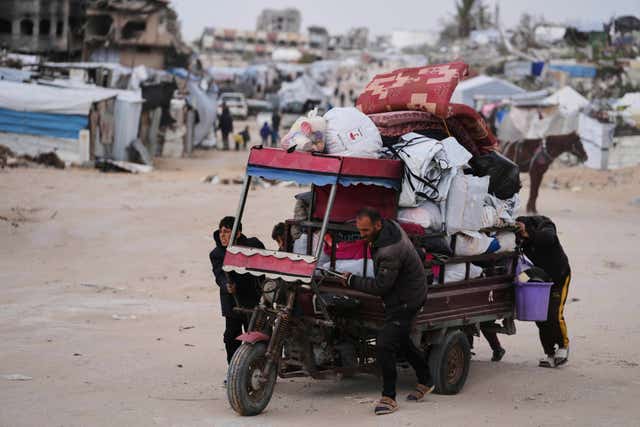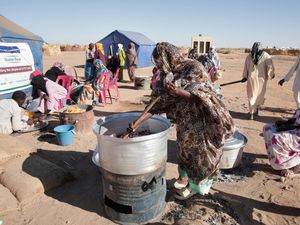UN warns Gaza bakeries set to run out of flour within a week
Aid workers are stretching out the supplies they have but warn of a catastrophic surge in severe hunger.

Gaza’s bakeries will run out of flour for bread within a week, the UN has warned.
For four weeks, Israel has shut off all sources of food, fuel, medicine and other supplies for the Gaza Strip’s population of more than two million Palestinians.
It is the longest blockade yet of Israel’s 17-month-old campaign against Hamas, with no sign of it ending.
Eventually, food will run out completely if the flow of aid is not restored, because the war has destroyed almost all local food production in Gaza.
The UN has cut its distribution of food rations in half to redirect more supplies to bakeries and free kitchens producing prepared meals, said Olga Cherevko, spokeswoman for the UN humanitarian agency, known as OCHA.

The number of prepared meals has grown 25% to 940,000 meals a day, she said, and bakeries are churning out more bread. But that burns through supplies faster.
Once flour runs out soon, “there will be no bread production happening in a large part of Gaza”, said Gavin Kelleher, with the Norwegian Refugee Council.
UNRWA, the main UN agency for Palestinians, only has a few thousand food parcels left and enough flour for a few days, said Sam Rose, the agency’s acting director in Gaza.
The World Food Programme said on Thursday that its flour for bakeries is only enough to keep producing bread for 800,000 people a day until Tuesday and that its overall food supplies will last a maximum of two weeks.
As a “last resort” once all other food is exhausted, it has emergency stocks of fortified nutritional biscuits for 415,000 people.
Fuel and medicine will last weeks longer before hitting zero, with hospitals rationing antibiotics and painkillers.
Aid groups are shifting limited fuel supplies between multiple needs, all indispensable — trucks to move aid, bakeries to make bread, wells and desalination plants to produce water, hospitals to keep machines running.

Clemence Lagouardat, the Gaza response leader for Oxfam International, said: “We have to make impossible choices. Everything is needed. It’s extremely hard to prioritise.”
Compounding the problems, Israel resumed its military campaign on March 18 with a bombardment that has killed hundreds of Palestinians, mostly women and children, according to health officials.
It has hit humanitarian facilities, the UN says. New evacuation orders have forced more than 140,000 Palestinians to move yet again.
But Israel has not resumed the system for aid groups to notify the military of their movements to ensure they were not hit by bombardment, multiple aid workers said.
As a result, various groups have stopped water deliveries, nutrition for malnourished children and other programmes because it is not safe for teams to move.
COGAT, the Israeli military body in charge of co-ordinating aid, said the system was halted during the ceasefire.
It is now implemented in some areas “in accordance with policy and operational assessments … based on the situation on the ground”, COGAT said.





